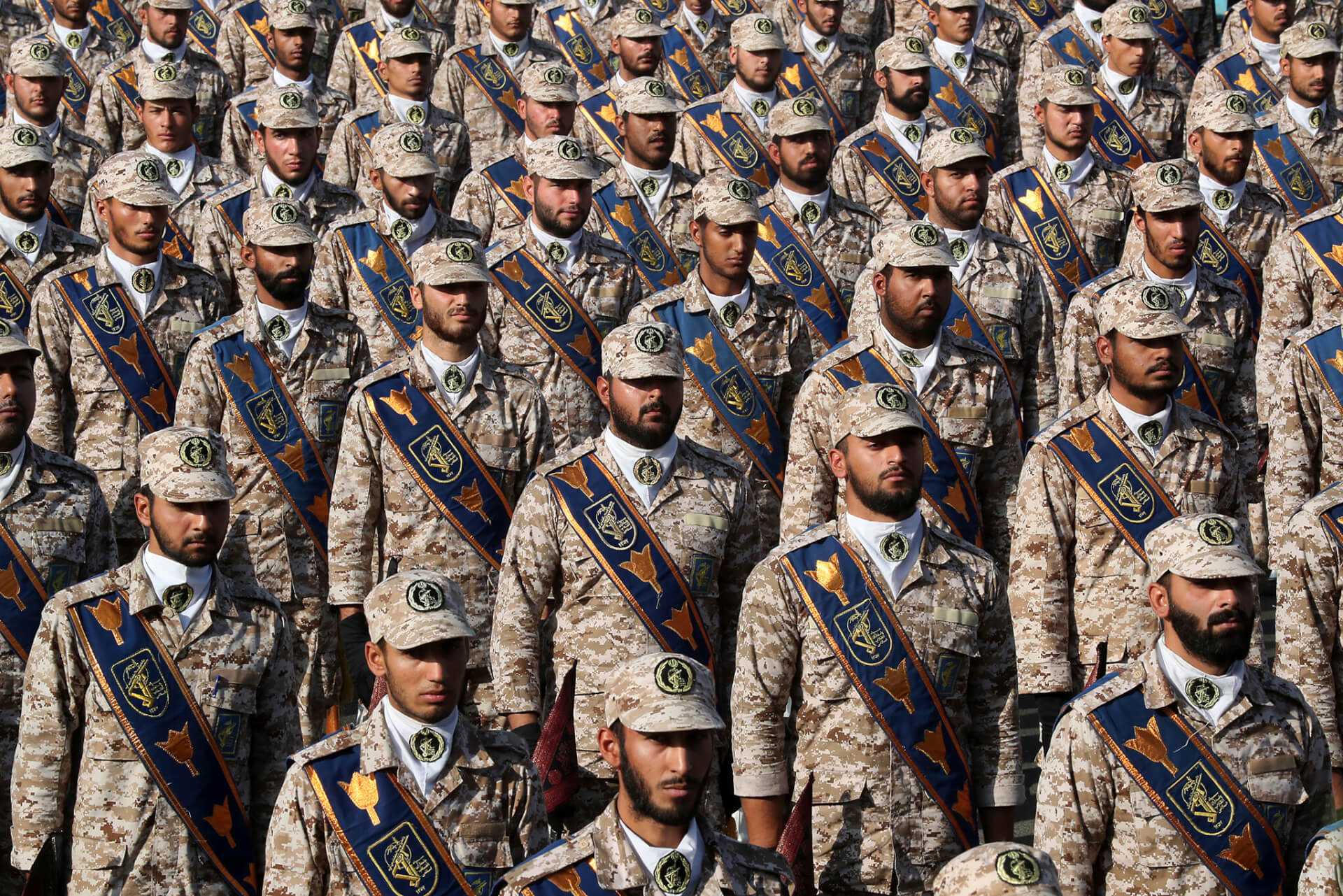Iran has dropped its longstanding demand of removing sanctions on the Islamic Revolutionary Guard Corps (IRGC) after resuming negotiations with the United States (US) on reviving the 2015 nuclear deal.
Reuters reported on Tuesday that Iranian and European officials had confirmed that Tehran has abandoned its demand to remove the paramilitary group from the US Foreign Terrorist Organization (FTO) list. The news follows a similar report by the Middle East Eye last week that Tehran will consider dropping the demand in exchange for the resumption of talks.
Iran’s insistence on the IRGC’s removal from the FTO list was one of the reasons the talks in Vienna did not progress for three months. The previous US administration, led by Donald Trump, had imposed sanctions on the IRGC and designated it an FTO in 2019. The move prevented the IRGC from doing business with foreign companies and froze the paramilitary group’s foreign assets.
With US envoy @USEnvoyIran in Doha for “joint diplomatic efforts to address issues with Iran”, the family of American hostage Emad Shargi publicly calls for any Biden admin deal with Iran to include his release alongside that of three other American hostages held by Tehran pic.twitter.com/yaiDOU7K35
— Margaret Brennan (@margbrennan) June 28, 2022
Iran’s decision to give up on its demand is said to be directly linked to the revival of talks in Doha. Following the same format in Vienna, talks in Doha will see the European Union (EU) act as an intermediary between American and Iranian representatives, who will not be meeting directly. The talks are taking place in an unnamed hotel with representatives from the US and Iran negotiating from separate rooms.
Iran’s top negotiator, Ali Bagheri Kani, met with the EU’s nuclear negotiator, Enrique Mora, on Tuesday; he asked him to pass Tehran’s messages to the Americans. It is unclear whether Mora met with US representatives and conveyed Iran’s message. However, EU foreign policy chief Josep Borrell said his team is ready to “coordinate and facilitate indirect exchanges between US and Iranian negotiators.” He added, “The goal of the proximity talks is to advance work to return to a fully operational and implemented JCPOA.”
Meanwhile, US Special envoy to Iran Rob Malley met with Qatari Foreign Minister Mohammed bin Abdulrahman al Thani and discussed “joint diplomatic efforts to address issues with Iran,” the US embassy in Qatar tweeted. The US gave no further details about Malley’s visit.
Statement: Qatar welcomes hosting indirect talks between the United States and Iran in Doha to revive the nuclear deal#MOFAQatar pic.twitter.com/N1nYVBCJ5V
— Ministry of Foreign Affairs - Qatar (@MofaQatar_EN) June 28, 2022
The Qatari Foreign Ministry welcomed the new round of EU-led indirect talks between the two rivals and reiterated Doha’s “full readiness to provide the environment” to ensure that all parties achieve a “successful dialogue.” The Ministry added that Doha hopes for “positive results” that lead to the revival of the Joint Comprehensive Plan of Action.
It added that reviving the 2015 nuclear deal is crucial for maintaining “security, stability, and peace” in the Middle East and “opening up new prospects for wider regional cooperation and dialogue” with Iran.
Also Read: Removing the IRGC From the Terror List Would be a Colossal Blunder by the US
Tehran, too, has welcomed the resumption of talks. In an interview with the Islamic Republic News Agency (IRNA), Abofazl Amouei, the spokesman of the Iranian parliament’s national security committee, said, “The Doha talks are a continuation of the Vienna talks and the proposed model is to accelerate the negotiation process and resolve the remaining issues of the Vienna talks.”
He noted that the new round of negotiations is “set to proceed more quickly,” particularly if Washington expresses readiness to lift sanctions. Referring to Israel, Amouei blamed the “influence of the Zionist regime” for the failure of the Vienna talks.
LR @RepMcCaul "Restarting nuclear talks with #Iran is a huge mistake. The IAEA just censured Iran for not telling the truth about its nuclear program. Why would we possibly reward Iran with a nuclear deal and sanctions relief?"https://t.co/YA32ityV2f
— House Foreign Affairs GOP (@HouseForeignGOP) June 26, 2022
Iranian officials have been holding intense negotiations to restore the JCPOA with their counterparts from Britain, France, Germany, Russia, and China in Vienna since April 2021. However, talks collapsed in March this year over serious differences. While Iran has called on the US to remove all sanctions, the US has blamed Iran for taking steps to accelerate its nuclear programme.
Moreover, Tehran had suspended all contacts with negotiators and the International Atomic Energy Agency (IAEA) after the agency passed a resolution censuring Tehran for not cooperating with the organisation and hiding its nuclear activities.
In response to the resolution, Iran shut down 27 IAEA surveillance cameras across nuclear sites. Tehran also announced that it will install two IR-6 advanced centrifuges at the Natanz facility to enhance its ability to rapidly enrich uranium. An IR-6 centrifuge spins uranium ten times faster than other centrifuges. The move could allow Iran to quickly add to its stockpile of enriched uranium, which the IAEA says is sufficient to produce a nuclear weapon.

